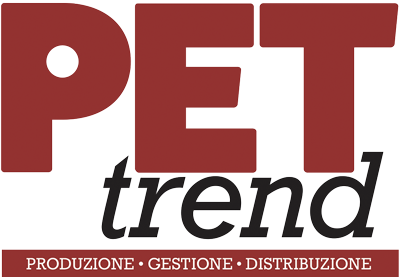The human being is not enough for himself. From 2015 to 2022, people who adopted more than one pet nearly doubled. It is no coincidence that Pet Alliance Europe was born in 2021. This association is coordinated by AnimalhealthEurope and the European Pet Food Federation (Fediaf), which is based on the belief that pets have the potential to improve the lives of all people, increasing the well-being of society as a whole: a set of benefits defined as #PetPower.
This conviction is supported by the many scientific researches that attest how living with a pet is not only a source of joy and serenity, but also a unique experience capable of counteracting physical pathologies and mental disorders.
In its paws
Human-animal interactions positively influence people’s psycho-physical health.
It has been proven that human-animal interactions influence blood pressure levels, heart rate, as well as the presence of hormones related to well-being. Among the many benefits deriving from the human-animal relationship, specific ones have also been observed in children. A child who lives with a pet develops greater empathy and respect for others, acquiring a greater sense of self-esteem and responsibility, as well as reinforcing the values associated with love and loyalty. All this without counting the benefits ascertained by scientific research on a purely physical level. In fact, early contact with pets has a significant impact in reducing the development of allergies and asthma throughout life.
The project ‘In its paws’ by Fnovi (National Federation of Italian Veterinary Orders) should be seen with a view to acting as soon as possible to create the right relationship with pets. The aim of this initiative is to make people understand that in order to correctly manage the man-dog relationship, we must identify ourselves with animals, in their way of acting, reacting, perceiving what is around them. For this reason, from nellesuezampe.it website, it is possible to download the educational booklet ‘I am not afraid of dogs’, a training course in animal welfare, aimed at primary school girls and boys. Thanks to parents and teachers, children are thus led to discover dog, to recognize its behaviour, its moods, and consequently to relate in compliance with its needs.
The third age
The health of the elderly is increasingly interconnected with pets. There are almost 4 million over 65 Italians who live with a dog or a cat. In Italy there are 1,920,264 over 65s who live with a dog and 1,838,832 who own a cat. According to ‘Senior Italia FederAnziani’ research centre, 9 out of 10 over 65 Italians who own a pet believe that living with a pet has a positive impact on their health and mood, reduces the feeling of loneliness, and increases serenity. In addition, more than 70% tell that they consider cohabiting animals as members of their family in all respects. In light of these data, the birth of Vet-Eris, an association founded in autumn 2022 to bring together geriatricians and veterinary doctors helping them to collaborate for the health of both elderly and animals, cannot be surprising. The two disciplines thus join forces to generate new therapy protocols, which, by resorting to pets to support elderly patients, do not neglect the well-being of the animal.
The legal framework
Only in recent decades the law has begun to translate the increasingly widespread sensitivity towards animals into a system of real legal rules. A first historic fundamental step in this regard was the Law of August 14th 1991 no. 281, thanks to which Italy recognized the right to life and protection of stray animals, forbidding their suppression except in some special cases. A few years later, the Agreement of February 6th 2003 was signed between Italian State, Regions, and autonomous Provinces, through which, among other things, the responsibilities of the animal keeper were outlined. But a real turning point was only reached with the Law of July 20th 2004, no. 189, a provision that inserts in the penal code (articles from 544 bis to 544 sexies) some new crimes, with the aim of punishing, with sanctions including custodial sentences, behaviour towards animals accomplished ‘for cruelty or without necessity’.
This is an important conquest, even if according to this law the protected asset is not yet the animal as an autonomous subject of rights, but the human feeling of pity towards it.
With Law 210 of 2010, then, Italy ratified the 1991 European Convention for pets, which, in addition to broadening the concept of ‘pet’ animal to some species not previously contemplated, sanctions human behaviour that, in addition to actual physical suffering, can cause an animal sense of ‘anguish’. Thus the idea, recognized for now only in some judicial sentences, of the animal as an autonomous and sentient being – that is, capable of feeling sensations and emotions – and no longer a simple object, approaches. In line with the growing sensitivity adopted also by the institutions, during the XVIII legislature the bill to reform the Constitution was then approved by Parliament. It includes the protection of the environment among the fundamental principles of the Italian Republic.
Socially, pets act as a ‘mediator’ that helps human beings to break down emotional barriers and develop positive interactions with others.
With ‘I am not afraid of dogs’ course, little ones are educated to recognize the behaviours to avoid and those to keep in order to strengthen a bond of great educational value with dogs.
In pet therapy an exchange is activated, a dialogue that must bring benefits to both the person and the pet: health is interconnected and everyone must feel good, both human beings and animals.





